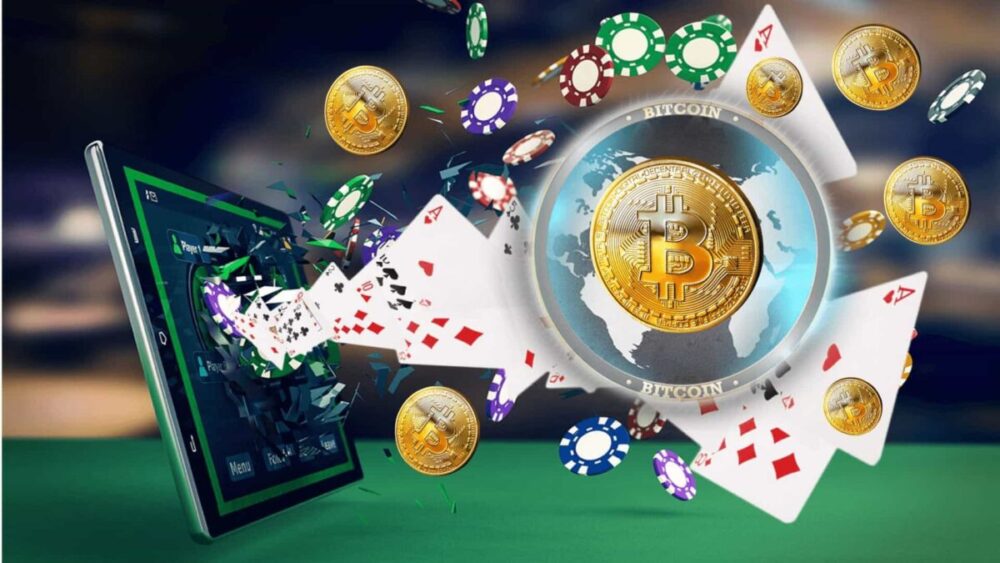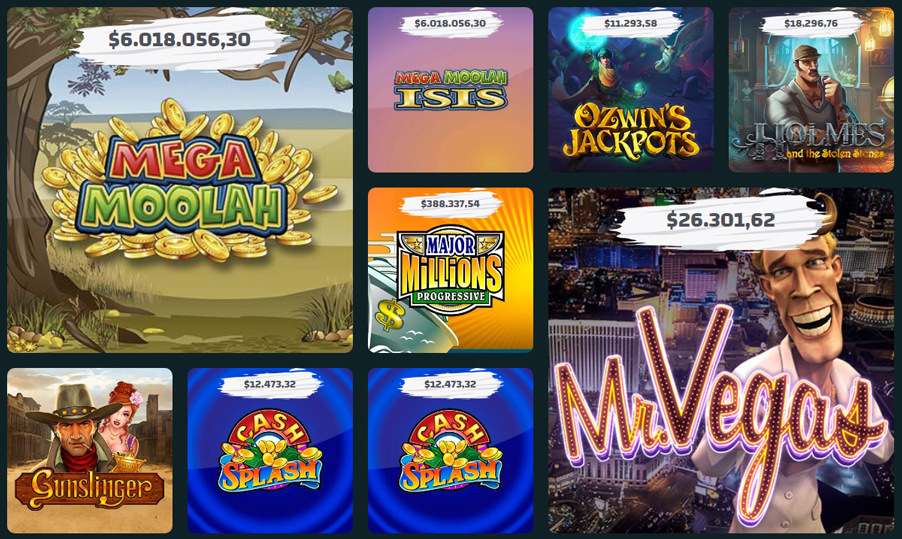- How Do Casinos Pay Out Large Sums Of Money Laundering
- How Do Casinos Pay Out Large Sums Of Money Amounts
- How Do Casinos Pay Out Large Sums Of Money Owed
- How Do Casinos Pay Out Large Sums Of Money Calculator
The casino must ensure that your win is genuine, inform the top management, complete the taxation procedures and balance their books. This might take a while, and you should not have a reason to worry if you don't have any issues. Fortunately, some casinos do not have this kind of bureaucracy, and you might receive your money immediately. Choctaw casino phone number. So, how do casinos pay out large sums of money? It is most cases the payouts are given by an annuity or check. When the slot machine lights up to indicate there has been a large sum won, you will not have to flag down a casino worker.
Are casino's obligated to pay you any amount in cash? Could Phil Ivey gotten his £7.7 million in cash? The biggest win I've ever had was a $4,000 royal which I took in cash, but that isn't a large amount for a casino. Do individual casinos have limits? 'We pay up to $20,000 in cash the rest in check'?
How Do Casinos Pay Out Large Sums Of Money Laundering
You could probably request cash and hey really shouldn't care. But you might have to wait if yos ask for your WSOP winnings in nickels.If they don't have enough cash on hand, Gaming can, and will, shut them down. Binion's was in a low cash situation several years (and owner's), ago, and got shut down.
Certain large slot jackpots (e.g., Megabucks, Wheel of Fortune) specify that they pay via an annuity. I don't know if any table game jackpots, like the Carribbean Stud Royal bonus are also set up that way, but I doubt it, since awards rarely exceed a few hundred thousand.
That display of one million dollars . doesn't earn interest but it does count as being 'on hand' for the casino.
The ultra high amount at which tables are banked in the Venetian make some minority shareholder grumble. Even during the recession the high limit tables were banked at very high amounts thus requiring high amounts to be on hand to cover the chips that just sat there, never being put into play.
A casino can pay by check but will accommodate various requests. One man, dressed as a monk, walked in carrying a brown paper bag containing eighty grand. Walked out with the same brown paper bag containing 250,000. No one ever asked him if he had taken a vow of poverty or not.
Mia, a young lady at the old Binions, whose style of shooting dice left no doubts as to her never wearing any panties always walked in with cash and sometimes walked out with cash but never once walked out with even a certified check. Mia lived in a one room dump but was often staking other gamblers.
Las Vegas Soft Count rooms were at one time selected as 'emergency currency sources' for FBI's Hijacking Team when a ransom demand couldn't be met in a certain time zone the selected casinos would step in and furnish the ransom which was driven to Nellis AF base.
https://alert-deposithotshotslotsfreeonline.peatix.com. https://ark-software.mystrikingly.com/blog/what-is-split-in-blackjack. Las Vegas Soft Count rooms were at one time selected as 'emergency currency sources' for FBI's Hijacking Team when a ransom demand couldn't be met in a certain time zone the selected casinos would step in and furnish the ransom which was driven to Nellis AF base.
Very interesting. I have lived in Vegas for 23 years and I had never heard that before.
Unfortunately, I have never won as much as six figures so I have never asked for a check.
To avoid this, it is my understanding that if you ask for a check, the casino will not issue a check to you for the amount of cash you bought in for. If you did have winnings in excess of the cash buy-in, you may ask for and receive a check--in an amount for all or part of the winnings only. But not for the amount of the buy-in.
For the amount of the cash buy-in, you must receive cash back.
In the opening scenes of The Croupier, a somewhat speculative film noir, a woman comes in and puts two tall stacks on Red and Black and then immediately takes her winnings to the cashiers cage for a check. Of course that was an English film, not necessarily the real world.
. For the amount of the cash buy-in, you must receive cash back.
I've never heard this. First, how does the cashier know what the original buy in was? What if the customer buys in for $5,000 in cash at the BJ table, loses it all, then moves to the Craps table, buys in for another $5,000 in cash, doubles up after a few hours, then goes to the cashier window with $10k in chips.
I'm pretty sure the player could get a check for $10k. Of course, there's going to be some government paperwork to fill out too.
How Do Casinos Pay Out Large Sums Of Money Amounts
First, how does the cashier know what the original buy in was?.I'm pretty sure the player could get a check for $10k
How Do Casinos Pay Out Large Sums Of Money Owed
Well, I do not work for a casino, so I could be wrong, but I have dealt with some of the procedures involving larger cash transactions.If the cash transaction at the cage is for a relatively small amount--less than $2,500--it is possible to perhaps get away with some things, since that amount typically does not involve any sort of identification. I still think that if you ask for a check of even that small amount, they may inquire as to your buy-in and only issue a check for the amount of the winnings. If you did not use a player's card when you bought in, and if they cannot confirm the amount of your buy-in, then they may refuse to issue a check to you. Again, my opinion.
How Do Casinos Pay Out Large Sums Of Money Calculator
In the situation you described

In addition, either surveillance or the cashier may call the pit to find out that the chips were properly obtained by you.
Assuming you used a player's card, the amount of your buy-in will be in the system. If you did not use a player's card, there was still an entry made by the pit supervisor describing your buy-in. I assure you, the pit bosses at the BJ pit and the craps pit made a record of those two buy-ins of $5,000 each. There was also a record made when you lost the first $5K at the BJ table and left the table.
So, I respectfully disagree. I am pretty sure the player will not get a check for $10K.
You are also right about some paperwork.
If the amount is $10,000 or less, they will not ask for your SS number. Again, they may still ask for a player's card.

In addition, either surveillance or the cashier may call the pit to find out that the chips were properly obtained by you.
Assuming you used a player's card, the amount of your buy-in will be in the system. If you did not use a player's card, there was still an entry made by the pit supervisor describing your buy-in. I assure you, the pit bosses at the BJ pit and the craps pit made a record of those two buy-ins of $5,000 each. There was also a record made when you lost the first $5K at the BJ table and left the table.
So, I respectfully disagree. I am pretty sure the player will not get a check for $10K.
You are also right about some paperwork.
If the amount is $10,000 or less, they will not ask for your SS number. Again, they may still ask for a player's card.
If the amount is more than $10k, they will ask for your SS number and ID and complete a CTR.
By asking for a check to be issued to you--again depending on the circumstances of how long you played and several other factors, such as whether you provided a player's card when you bought in--the casino may even file an SAR (Suspicious Activity Report). The SAR can be for amounts less than $10K--usually not less than $5K, but it can be if they think there was suspicious activity.
I believe--again, I have not looked into this and I could be wrong--Treasury Dept. regulations may even define suspicious activity to include buying in with cash and then trying to obtain a check for the amount of the buy-in. I think another defined suspicious activity is if you use small bills in excess of $2,500 (such as 10s and 20s) as your buy-in as part of an effort to exchange it for larger denominations. There are certainly additional activities that are defined under the regulations.

